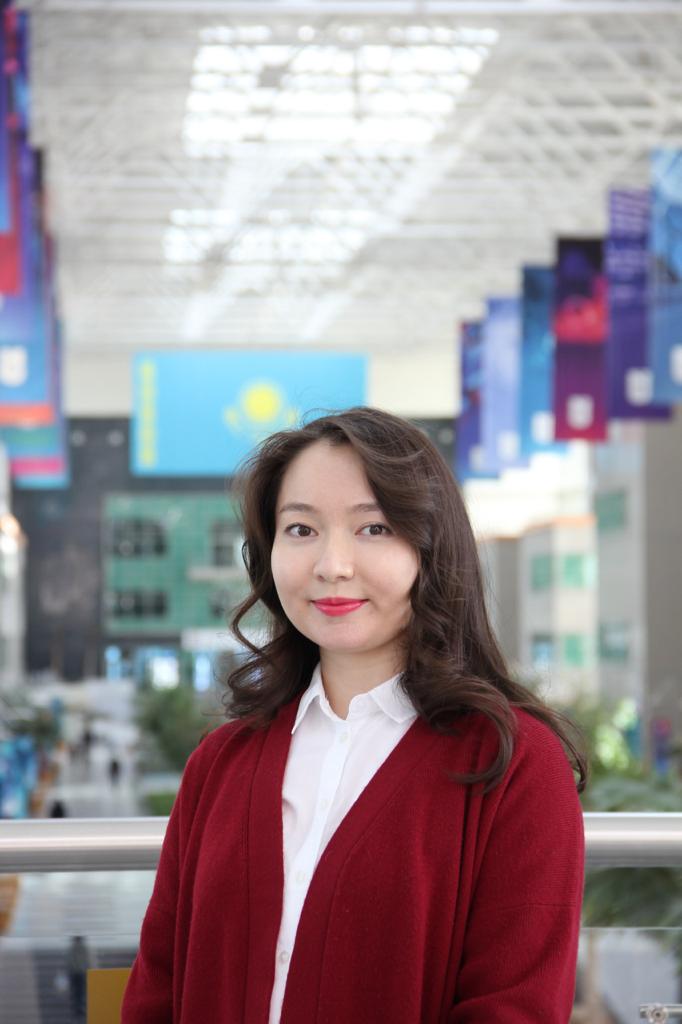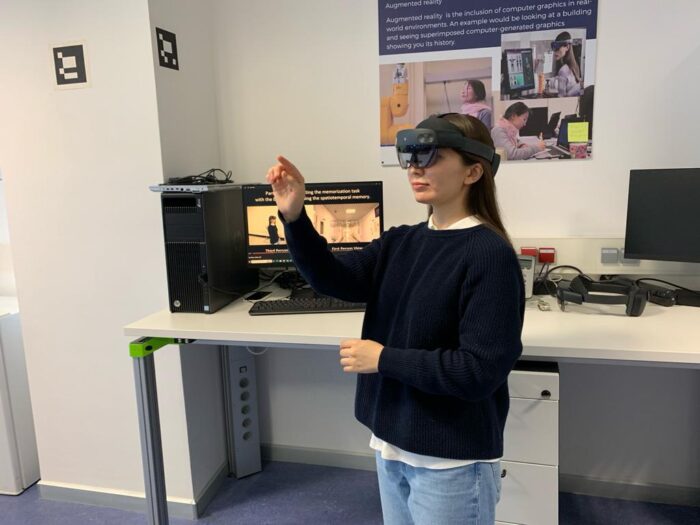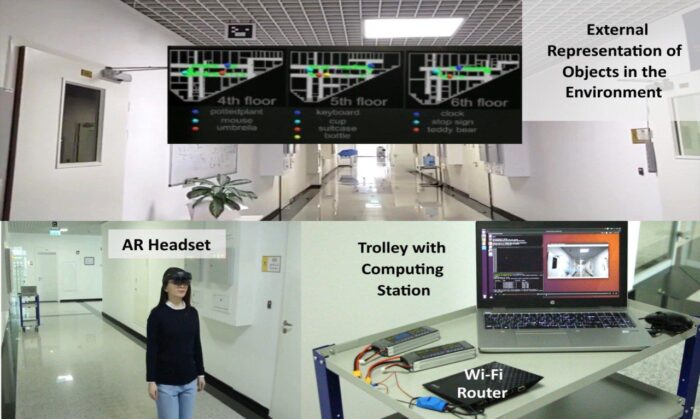ASTANA — On Feb. 11, the world celebrates the International Day of Women and Girls in Science. Postdoctoral researcher at the Institute of Smart Systems and Artificial Intelligence (ISSAI) at Nazarbayev University (NU) Zhanat Makhataeva, a trailblazer in the field of tech and research, shared insights into her journey as a woman in science in a recent interview with The Astana Times.

Postdoctoral researcher at the Institute of Smart Systems and Artificial Intelligence (ISSAI) at Nazarbayev University (NU) Zhanat Makhataeva. Photo credit: Makhataeva’s personal archive.
Her journey into science started during her school years, marked by her propensity to pose questions beyond the conventional curriculum. Passionate about math and physics, Makhataeva’s enthusiasm found support from her parents. She emphasized that her parents’ refusal to impose stereotypical gender roles played a pivotal role in her scientific accomplishments. This upbringing fostered a mindset where she could engage in activities aligned with her passions without feeling obligated to conform to traditional gender expectations.
“The fact that my parents never told me what I should like as a girl was a big factor for my success in science,” Makhataeva reflected.
In the past few years, Makhataeva was the first Kazakh to have a transformative experience as a research intern at Microsoft Research Cambridge in the United Kingdom. Her journey to one of the world’s tech giants reflects not only personal growth but also the evolving landscape of opportunities for women in the global tech arena.
Exploring Microsoft Research Cambridge: a glimpse into innovation

Makhataeva was the first Kazakh to join Microsoft Research Cambridge program in the UK. Photo credit: Makhataeva’s personal archive.
Reflecting on her 12-week internship at Microsoft Research Cambridge, Makhataeva describes it as a pivotal moment in her career. She delved into the vibrant environment of a major tech company, encountering diverse research teams and cutting-edge projects.
“It was a fantastic experience, being in a big tech company with a dedicated research team. We worked on prototypes, conducted user studies, and even published a paper,” she shared.
Makhataeva’s involvement in developing cognitive assessment systems for blind individuals showcased the intersection of technology and accessibility. Working on a virtual reality system tailored for the visually impaired, she witnessed firsthand the power of technology to transcend physical limitations.
“I worked with a system which allows blind people to experience virtual reality. I mean, these people, they cannot see the environment and they cannot see the virtual environment. But they can hear it, I mean, they can hear their footsteps in the virtual environment, they can hear the echo from the walls and also whenever they approach some second selection environment,” she said.
According to Makhataeva, the internship was a melting pot of talent from around the globe.
“In a team of 10 people, we had representatives from various countries. The environment was truly international, fostering collaboration and innovation. It was very gender balanced,” she remarked.
Kazakhstan’s path in technological advancement
Looking beyond her Microsoft experience, she contemplated Kazakhstan’s trajectory in technology. Makhataeva emphasized the importance of investing in research and AI, envisioning Kazakhstan as a frontrunner in technological innovation.
“We are a young country, and this could be our advantage,” she asserted, highlighting the pivotal role of the younger generation in shaping Kazakhstan’s future.
She stressed the importance of nurturing opportunities for the younger generation, highlighting the responsibility to foster a mindset of possibility and progress.
“I think we are going in the right direction. We are investing in research, in AI, and it’s the right thing to do because we are quite a young country. This could be our advantage. Our responsibility is to open up opportunities and we would have even more progress if we will invest in our future generation,” Makhataeva said.
Empowering women in STEM
Makhataeva reflected on her journey spanning nearly 11 years, commencing from foundational education to achieving a PhD at NU. She highlighted the changing dynamics of gender representation in STEM (science, technology, engineering, and math) fields, particularly in her journey through academia. From being the sole female student in her bachelor’s program in the robotics program at NU to witnessing a near-equal gender ratio in recent cohorts, she acknowledges the progress made in promoting diversity and inclusion.

Makhataeva’s involvement in developing cognitive assessment systems for blind individuals showcased the intersection of technology and accessibility. Photo credit: Makhataeva’s personal archive.
“In my time, being a female student in robotics was quite rare. But now, there’s a noticeable shift with more girls pursuing STEM disciplines,” she noted.
Vision for the future: bridging accessibility and innovation
Looking ahead, Makhataeva envisions a future where technology serves as an equalizer, providing opportunities for individuals with diverse abilities. Her dream is to create a society where accessibility is not just a feature but a fundamental aspect of technological advancement.

Working on a virtual reality system tailored for the visually impaired, she witnessed firsthand the power of technology to transcend physical limitations. Photo credit: Makhataeva’s personal archive.
“I believe in creating inclusive technologies that empower every individual, regardless of their abilities. It’s about opening doors and expanding opportunities,” she said.
Makhataeva’s journey epitomizes the transformative power of curiosity, perseverance, and inclusion in the tech landscape. She continues to inspire a new generation of innovators to push boundaries and unlock the full potential of technology.
As Kazakhstan moves towards the inclusion of women in the ever-evolving realm of tech, her story serves as a reminder that true innovation thrives in environments where diversity is celebrated and barriers are shattered, paving the way for a brighter, more inclusive future. In the end, it is not just about building better technology; it is about building a better world—one where everyone has a seat at the table and every voice is heard.

